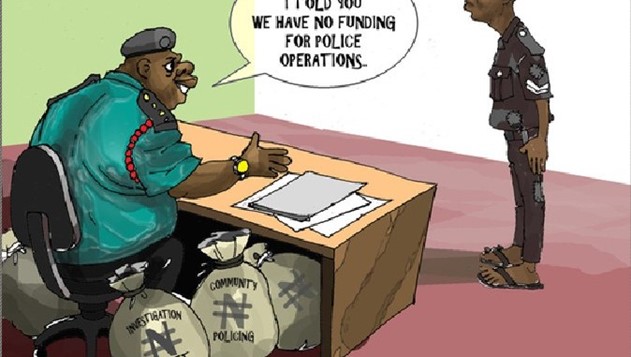232news
_____________________________
Greetings, Reader! I want to share the experience of an anonymous citizen who went on an amazing journey with the Criminal Investigations Department (CID) in Sierra Leone.
The enduring specters of bureaucracy and corruption frequently impede development in Sierra Leone, a country with a rich cultural legacy and room for economic expansion. This citizen, Abu (not his real name), entered the CID prepared to get his police clearance processed. What is supposed to be a seemingly straightforward process was complicated by the requirement to navigate through multiple officials, each of whom subtly suggested that a monetary “gift” could expedite the procedure.
At each desk and with each new face came the unspoken expectation of a bribe, when asked for receipts in exchange for these unofficial payments, none could provide any, confirming the illicit nature of their requests. His refusal to comply with these unofficial fees did not stem from a lack of urgency but from a principled stand against a corrupt practice that is all too common.
This encounter is not an isolated incident but a reflection of a broader systemic issue that affects many other governmental institutions across Sierra Leone. The bureaucracy, which is supposed to simplify and control procedures, frequently has the opposite effect and fosters corruption.
The bureaucracy that is supposed to help end corruption is making corruption easier than ordering a pizza. This inefficiency not only hinders service delivery but also erodes public trust and stifles development.
The encounter at the CID serves as a microcosm of the larger challenges facing Sierra Leone in its fight against corruption. The government, civil society, and the international community must all work together in unison to address these problems. By implementing robust measures and fostering a culture of transparency and accountability, Sierra Leone can pave the way for a more prosperous and equitable future.
To effectively tackle corruption in Sierra Leone, it’s crucial to adopt comprehensive strategies that target the issue’s symptoms and root causes. For instance, integrating digital solutions into public services can minimize opportunities for corruption by reducing direct interactions and discretionary powers. The demand for bribes could be reduced by enabling online applications for standard documents like police clearances. Furthermore, educating the public about their rights and the proper ways to obtain services can empower citizens to advocate for transparency and accountability.
Most importantly, providing adequate resources and equipment to reinforce the efforts of the Anti-Corruption Commission cannot be over-emphasized. Despite their intensified efforts, the Commission continues to grapple with challenges such as access to functional vehicles and laptops, which are essential for their operations.
Beyond laws and regulations, promoting a cultural shift towards integrity and ethical behavior within the civil service is vital. This can be fostered through regular training, clear ethical guidelines, and a merit-based system for promotions and rewards.

